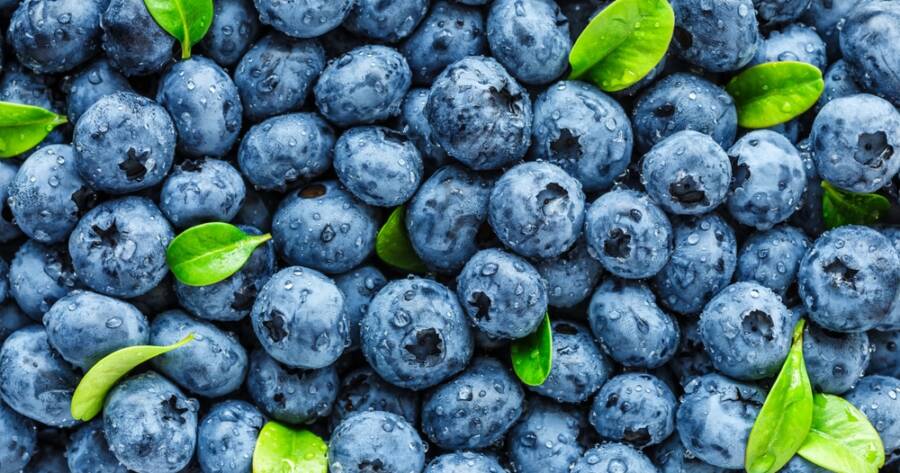Chronic inflammation can silently wear down your health, contributing to everything from joint pain and fatigue to heart disease and digestive issues. But the foods you choose can help fight back. Certain ingredients are packed with powerful compounds that soothe inflammation, support immunity, and promote long-term wellness. By filling your plate with natural, whole foods, you can help calm your body from the inside out, and feel better, more energized, and more balanced every day.
Fatty Fish to Fight Inflammation
Fatty fish like salmon, sardines, mackerel, and trout are some of the most potent anti-inflammatory foods you can eat. They’re rich in omega-3 fatty acids, specifically EPA and DHA—which help reduce the production of inflammatory compounds in the body. These healthy fats also support heart health, brain function, and joint comfort.
Try adding fatty fish to your meals two to three times per week. Grilled salmon over a salad, sardines on whole grain toast, or fish tacos with avocado are all easy, tasty ways to incorporate more omega-3s. If you don’t eat fish, consider plant-based sources like flaxseeds, chia seeds, and walnuts, though they provide a different form of omega-3 (ALA) that’s slightly less potent but still beneficial.
Colorful Berries Packed With Antioxidants
Berries are small but mighty when it comes to fighting inflammation. Blueberries, strawberries, raspberries, and blackberries are loaded with antioxidants called anthocyanins, which help reduce oxidative stress in the body and calm inflammatory pathways. They also contain fiber and vitamin C, which support overall immune function.
Enjoy berries in smoothies, on top of oatmeal, or as a naturally sweet snack throughout the day. Their anti-inflammatory benefits are even more powerful when eaten regularly. Frozen berries are just as nutritious as fresh ones and offer a convenient, affordable option year-round. The variety of colors also means you’re getting a broad range of healing nutrients in every bite.
Leafy Greens and Cruciferous Vegetables
Dark leafy greens like kale, spinach, arugula, and collard greens are rich in vitamins A, C, and K, as well as phytonutrients that combat inflammation at the cellular level. They’re low in calories but high in fiber and antioxidants, making them ideal for calming the body from within.
Cruciferous vegetables—like broccoli, Brussels sprouts, and cauliflower—are also inflammation-fighters. They contain compounds like sulforaphane, which help neutralize toxins and reduce oxidative stress. Sauté them with olive oil and garlic, roast them for a crispy finish, or add them to grain bowls for an easy, healing side dish. The more variety in your veggie intake, the more anti-inflammatory protection you provide your body.
Spices That Soothe from the Inside Out
Certain spices have powerful anti-inflammatory properties, with turmeric and ginger topping the list. Turmeric contains curcumin, a compound shown to reduce inflammation and improve joint health. Ginger has been used for centuries to ease digestive discomfort, lower pain levels, and reduce inflammation naturally.
Add turmeric to soups, stews, and rice dishes, or blend it into smoothies with a pinch of black pepper to boost absorption. Ginger works well in teas, stir-fries, or grated into dressings and marinades. Other helpful spices include cinnamon, garlic, and cayenne pepper. Using spices in your cooking not only enhances flavor but also delivers natural compounds that help your body stay balanced and calm.
Healthy Fats from Nuts, Seeds, and Avocados
Not all fats are harmful. In fact, some are essential for reducing inflammation. Nuts like almonds and walnuts, seeds such as flax and chia, and avocados are full of monounsaturated fats and antioxidants that help protect your cells from damage. These fats also support brain function, skin health, and hormone balance.
Add sliced avocado to your toast or salad, toss seeds into smoothies or oatmeal, and enjoy a handful of nuts as a satisfying snack. Just be mindful of portion sizes, especially with nuts, which are calorie-dense. By making healthy fats a regular part of your meals, you create a more anti-inflammatory and nourishing foundation for your overall well-being.
Green Tea and Hydrating Beverages
Green tea is loaded with polyphenols and catechins—antioxidants that help reduce inflammation and support heart and brain health. It’s a gentler alternative to coffee and offers a calming boost of energy without the crash. Drinking green tea regularly may help lower levels of C-reactive protein, a marker of inflammation in the body.
Hydration plays a key role in flushing out toxins and supporting cellular health. Alongside green tea, sip water infused with lemon, cucumber, or mint throughout the day. Avoid sugary drinks and excess alcohol, which can contribute to inflammation. When your body is hydrated and supported with anti-inflammatory drinks, it’s better able to heal and thrive.
Nourish to Heal—One Bite at a Time
Inflammation doesn’t need to control your health. By choosing whole, colorful, and nutrient-rich foods, you can help your body return to a more balanced, calm state–naturally. Whether it’s adding a handful of berries, swapping in olive oil, or sipping green tea, small changes can make a big difference. Food is one of the most powerful tools for healing, and every bite is a chance to support how you feel from the inside out.

